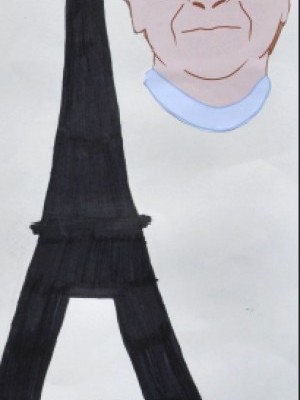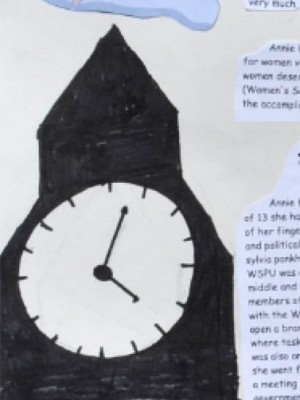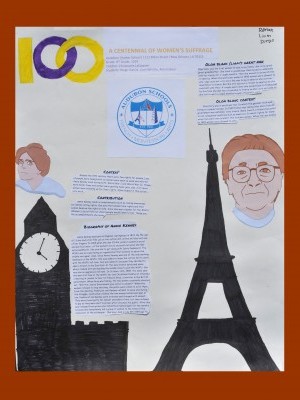Liam Whittle, Diego Garcia & Ronan Basik
Audubon Charter School | New Orleans, LA | 8th Grade
Inspirational Family Member
Olga Blanc
Olga Blanc was the first woman to vote in my family, she is my great-grandmother. She lived in Guadeloupe then moved to Venezuela with her family for a couple of months. Then she moved to the United States of America.
When the Second World War ended in 1945, women were allowed to vote in France. Olga could not vote since she was living in America and she lost her residence in France. But she still was not a citizen of the United States so she could not vote here. A couple of years later she moved back to France but by that time she had lost her French citizenship so she could not vote. She had to wait a while longer to gain citizenship again.
This story was in World War II when the German Reich was trying to conquer Europe. In 1940 France was taken over and a fascist government was installed in Vichy. Many French civilians evacuated to non-conquered countries such as the United States where rights for many minorities were non existent. When the war ended in 1945 women were allowed to vote in France. –Liam Whittle
Historical Figure I Admire
Annie Kenney was born in Springhead, England, in 1879. By the age of 13, she had a full time job at the cotton mill. At the mill she lost one of her fingers. In 1905, when she was 29, she joined the Women’s Social and Political Union (WSPU), a women’s organization founded by the Pankhursts. At the WSPU, she met Sylvia Pankhurst. She started to get along with her. The WSPU was accused of being an organization that existed to serve the middle and upper class. Since Annie Kennedy was one of the only working members of the WSPU, she was asked to leave the cotton mill to work with the WSPU full time. She was asked to work full time because they decided to open a branch in the East End. At this new branch Sylvia and Annie were tasked with persuading the middle class to join the WSPU. She was also an aggressive militant. In October 13, 1905, the same year she went full time at the WSPU, she and Christabel Pankhurst attended a meeting in London to hear sir Edward Grey, a minister in the British government. When Grey was talking, the two women constantly shouted out, “Will the Liberal Government give votes to women?” When the women refused to stop shouting, the police was called to evict them from the meeting. Pankhurst and Kenney refused to leave and during the struggle, a policeman claimed the two women kicked and spat at him. Pankhurst and Kenney were arrested and charged with assault. They were found guilty for assault and were fined, but they refused to pay so they were sent to prison, which shocked the public. After she was released from prison she instantly was arrested again because she immediately led a group of women to the home of the Chancellor of the Exchequer. She later died in July 9, 1953, at the age of 73.
Around the 19th century, there were few rights for women. Lots of people were misogynistic so women were seen as weak and inferior. Annie Kenney lived during both World War I and World War II. These were harsh times and women were getting men’s jobs. Also, a lot more women were standing up for their rights; Annie helped in this action very much.
What the Project Means to Me
Annie Kenney’s accomplishments included raising awareness for women voting rights. She said that women had rights and that women deserved the right to vote. Since she was a leader for the WSPU (Women’s Social & Political Union) people would listen to her.
Deadline Extended
There's still time to join Women Leading the Way.
Become a part of our storytelling archive. Enroll your class today.
Join the Project




